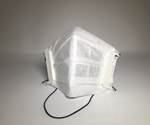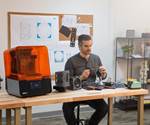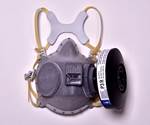Materialise Develops 3D Printed Oxygen Mask to Address Shortage of Ventilators
Materialise has developed a 3D-printed oxygen mask to reduce the time COVID-19 patients need access to mechanical ventilators. Materialise is looking for partners to get this solution to as many patients as possible.
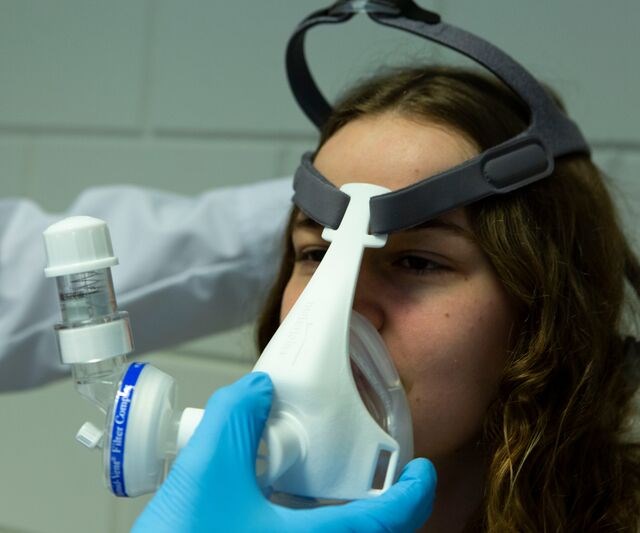
3D printed non-invasive PEEP mask (NIP).
Materialise, a Belgium-based 3D printing company, has developed the Materialise NIP Connector, a device to convert standard equipment available in most hospitals, into a mask to facilitate breathing for patients by creating positive pressure in the lungs. These assembled masks allow clinicians to reduce the time patients need access to mechanical ventilators, which helps to reduce the strain on ventilator supplies. Materialise has decades of experience in certified medical 3D printing and is now fast-tracking the regulatory registrations that are crucial to ensure the safety of patients and caregivers. The company expects to have the device broadly available for hospitals by mid-April.
Around the world, hospitals are looking for medical equipment capable of delivering air with added oxygen to treat critically ill coronavirus patients. Currently this treatment is carried out using mechanical ventilators, which are critically under-supplied. As a result, clinicians today are exploring different methods to apply positive end expiratory pressure (PEEP) to the lungs of COVID 19 patients without the use of a ventilator.
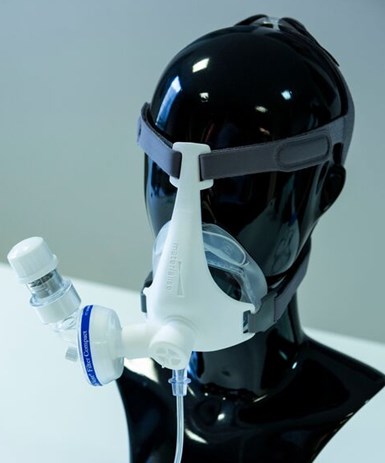
The company’s NIP connector device converts standard equipment available in most hospitals, into a mask to facilitate breathing for patients by creating positive pressure in the lungs.
Materialise has developed a solution to deliver oxygen and create high positive pressure without the use of a ventilator. A 3D printed connector converts standard equipment already available in most hospitals into a non-invasive PEEP mask (NIP) that can be connected to the oxygen supply (to facilitate breathing for coronavirus patients). This solution gives patients an extended period of time before mechanical ventilators are required for treatment, and helps transition them off ventilators earlier, freeing up these devices for patients in critical need. By using standard medical equipment, including a non-invasive ventilation (NIV) mask, a filter and a PEEP valve, the solution is said to be a simple and familiar to use for medical professionals.
The company says that it is critical to comply with regulations to ensure the safety of patients and caregivers. Materialise is now fast-tracking the regulatory registration (in Europe and the U.S.). Materialise is also supporting a clinical trial to test the clinical impact of its use on COVID-19 patients and expects first results to be available within the next two weeks.
“3D printing is playing a crucial role in fighting the global coronavirus pandemic by making it possible to develop innovative solutions and have them available worldwide very quickly,” says Brigitte De Vet, Vice President of Materialise Medical.
The 3D printing company is upscaling its production capability to make the solution available broadly and quickly to hospitals that are looking for an emergency solution. The Materialise NIP Connectors will be manufactured at the company’s ISO 13485 certified facilities in Belgium and Plymouth, Michigan and on-site 3D printing facilities of qualified partners. Materialise is looking for partners to get this solution to as many patients as possible.
Related Content
-
Cranial Implant 3D Printed From Hydroxyapatite Ceramic: The Cool Parts Show #76
Cranial implants are typically made from titanium or PEEK; in this episode of The Cool Parts Show, we look at how implants made from a bioceramic can improve osseointegration and healing.
-
Micro Robot Gripper 3D Printed All at Once, No Assembly Required: The Cool Parts Show #59
Fine control over laser powder bed fusion achieves precise spacing between adjoining moving surfaces. The Cool Parts Show looks at micro 3D printing of metal for moving components made in one piece.
-
3D Printed PEEK Spine Implants in Production: The Cool Parts Show Bonus
Curiteva is using Fused Strand Deposition to produce two different lines of FDA-cleared spine implants. We visited the company’s Huntsville, Alabama, facility to learn more.

